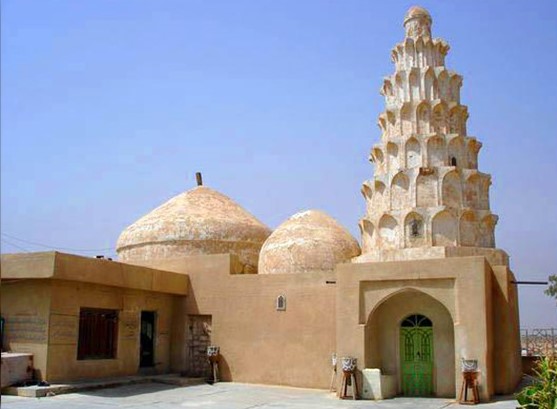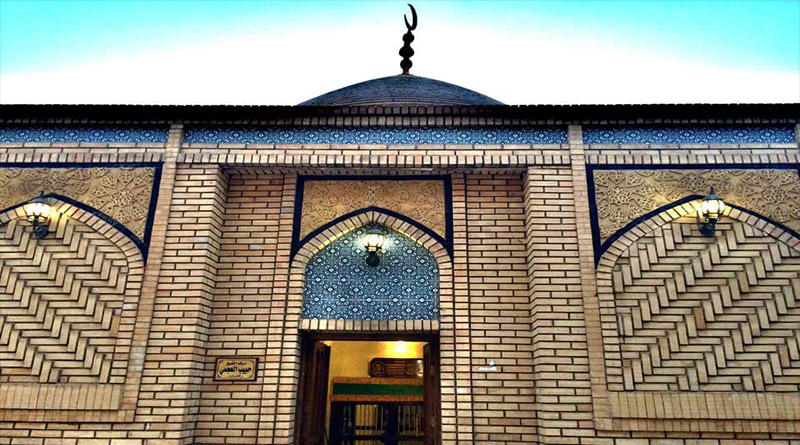He was their Sheikh in the cloak and on the path, their teacher in allegiance and covenant: the pious and ascetic master, the noble supporter, the brave struggler, the leader among the great servants of God endowed with knowledge, the perfect guide, the Sheikh of all and over all, the head of sects, the Imam of all gnostics, the deputy of the cousin of the Prophet (peace be upon him), and the inheritor of the concealed knowledge.
His full name
His full name was Abu Sa‘id al-Hasan ibn Abi al-Hasan Yasar ibn Mutahhar ibn Ghadhira ibn Qarhad (or Farhad, with a “Fa’”), al-‘Awfi al-Basri. His father, Abu al-Hasan Yasar, was from the captive people of Maysan — a vast district with large villages and palm groves located between Basra and Wasit in Iraq. He settled in Medina as a freed slave and married there during the caliphate of ‘Umar ibn al-Khattab.
Birth and Upbringing
Al-Hasan was born in Medina during the last two years of Caliph ‘Umar’s rule (circa 644-646 CE). He grew to become a leading authority in jurisprudence, hadith, Qur’anic exegesis (tafsir), Qur’anic sciences, language, literature, rhetoric, and Sufism.
He wore the cloak (khirqah) of Imam Ali ibn Abi Talib (may God honor his face and be pleased with him), as verified by the scholar Jalal al-Din al-Suyuti (may God have mercy on him).
It is unanimously agreed upon that Hasan al-Basri is the Imam of the path of Sufism among the Tabi‘un (the generation following the Companions). Most Sufi chains of transmission trace back to him.
Muhammad ibn al-Hasan said: “Hasan al-Basri was a model and an Imam in Shariah, the path, and the Sunnah.”
Another scholar said: “Whoever loves to follow the Sunnah of the Messenger and act upon the way of his Companions should emulate Hasan.”
Al-Suyuti confirmed that Hasan al-Basri met Imam Ali and received knowledge directly from him in his book Rif‘u al-Khirqah.
Some of His Admonitions
Hasan (may God sanctify his secret) wrote to ‘Umar ibn Abd al-‘Aziz:
“Know that reflection calls to good and acting upon it, and regret over evil calls to abandoning it. What perishes—even if abundant—does not equal what remains, even if hard to attain. Beware of this transient, deceptive, and treacherous abode, which adorns itself with illusions, deceives with its allure, and kills its people with false hope. It is like a shunned bride: eyes gaze upon it, souls long for it, hearts are enamored, yet it harms all its companions. Neither the past nor the future is to be relied upon; experience does not benefit the wise. Beware fully of it: it is like a snake whose skin is soft but whose poison kills. Turn away from what pleases you about it, for little will accompany you, and cast away its burdens for the calamities endured. Hardship is part of its ease. Be cautious in it and of it, for the more one enjoys, the more misfortune approaches. Those who travel through it become lost; those who seek benefit become destitute. Its prosperity is mixed with affliction, and its permanence leads to destruction. Its joy is laced with sorrow, and its end is weakness and decay. Regard it as a renunciant, not a lover. Know that it removes the resting place of the settled and wounds the secure pride. None who turn away will return, and none can foresee what lies ahead.”
He also said:
“The world is the abode of deeds; those who accompany it with renunciation benefit from their companionship with it. Those who accompany it with desire and love suffer and surrender to torment beyond endurance from the punishment of God. Its command is small and its delight little; its end is written, and God is the inheritor of it. Its people are transferred from it to other abodes and eventually depart. Beware of this place and increase your detachment from it. Cut off most of your concerns from the world, and do not incline to it lest it ruin you in the end, leading to regret and severe punishment. Do not be deceived, nor feel secure from what has not yet come, for great calamities lie ahead. None escape them except by the path and presence of those matters. Either they spare you from their evil or cause your destruction. Prepare and flee from their harm, and do not be distracted by fleeting pleasures. Do not trust your life for it exacts swift revenge on your years. Hastening your end is better than procrastination, for no one knows when they will return to God. The proof is clear, the excuse evident, and all who meet God are judged either by His mercy and reward, a great blessing, or by His wrath and punishment, a great regret. Those who have received God’s revelation must belittle what is small in His sight and magnify what is great in His sight.”
Certainty and Speech
Among his sayings reflecting profound certainty was:
“I have seen a certainty with no doubt in it, almost like a doubt with no certainty in it—except death.”
He also said:
“Whoever wears wool out of humility for God, God increases light in his eyes and heart. Whoever wears it to show off his asceticism and pride over brothers will be rolled in Hell with the devils.”
He remarked:
“Not all people are suitable to wear wool because it requires purity and fear of God.”
When once asked why he wore wool, he initially remained silent, then said:
“If I say it is for renunciation of the world, I have praised myself.”
Among his exhortations:
“O son of Adam, you will be judged tomorrow; your good and evil deeds will be weighed. Do not belittle any good deed, no matter how small, for when you see it, it will please you. Do not belittle any evil deed, no matter how small, for when you see it, it will sadden you. Beware of minor sins.”
He said:
“Alas, the world has vanished utterly, and only deeds remain as necklaces around your necks.”
He also said:
“Those of piety have signs by which they are known: truthful speech, fulfilling promises, maintaining family ties, mercy toward the weak, modesty before people, good character, and generosity in acts that bring one closer to God.”
Death
He (may God sanctify his secret) died in Basra at the beginning of Rajab in the year 110 AH (circa 728 CE). His funeral was widely attended.
Near death, he fainted but then regained consciousness and said:
“You have reminded me of gardens and springs and a noble station.”
Before his passing, a man told Ibn Sirin:
“I saw as if a bird took the best stone in the mosque.”
Ibn Sirin replied:
“If your vision is true, Hasan has died.” Shortly thereafter, Hasan passed away.
Sources
- A‘lam al-Islam, p. 182
- A‘lam al-Tasawwuf



